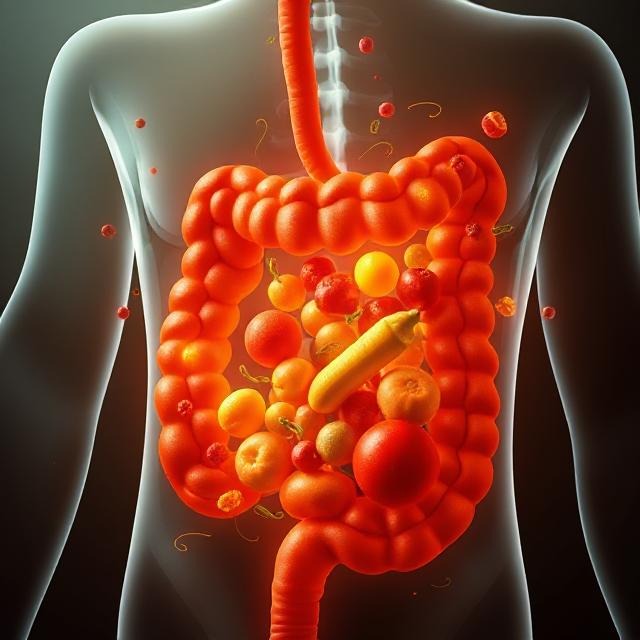
Have you ever wondered how quickly the food you eat moves through your digestive system? The speed at which food travels through your gut plays a crucial role in overall health. Once swallowed, food embarks on a journey through the gastrointestinal (GI) tract, starting from the mouth and ending at the anus.
The Journey of Food Through Your Digestive System
As food moves through the GI tract, it passes through various organs that serve specific functions:
- Stomach: Digests food with acid and enzymes.
- Small Intestine: Absorbs essential nutrients.
- Large Intestine: Absorbs water and salts.
This movement is known as gut motility, which is influenced by the trillions of bacteria living in the gut, collectively known as the gut microbiome. These bacteria play a vital role in digestion, immune system development, and overall gut health.
The Role of Gut Bacteria in Digestion
When we eat, we are not only nourishing ourselves but also feeding the helpful bacteria in our gut. These bacteria produce small molecules called metabolites, which stimulate intestinal nerves, ensuring smooth food movement. Without these essential microbes and their metabolites, digestion slows down, potentially leading to constipation and discomfort.
What Is Intestinal Transit Time?
The time it takes for food to travel from ingestion to excretion is known as intestinal transit time. This varies from person to person but typically ranges from 12 to 73 hours, with an average of 23-24 hours.
Differences in transit time influence an individual's gut microbiome, affecting overall gut health. Factors such as genetics, diet, and gut bacteria composition determine how quickly or slowly food moves through the digestive system.
Effects of Slow Intestinal Transit
When the gut moves food too slowly, different metabolites are produced by bacteria in the large intestine. Bacteria prefer fiber as a food source, but if fiber is delayed in reaching the large intestine, they resort to digesting protein instead. This can lead to:
- Production of toxic gases, causing bloating.
- Increased risk of small intestinal bacterial overgrowth (SIBO), leading to abdominal pain, nausea, and discomfort.
Effects of Fast Intestinal Transit
A fast-moving gut can also negatively impact health. Several factors contribute to rapid transit time, including:
- Anxiety
- Inflammatory bowel disease (IBD)
When food moves too quickly, the body may not absorb nutrients effectively, potentially leading to deficiencies and digestive issues.
Read More: The Crimson Secret Why DIY Alta is the Best Choice for Your Skin This Festive Season

 Share
Share


_853562307_100x75.jpg)
_1063032679_100x75.jpg)